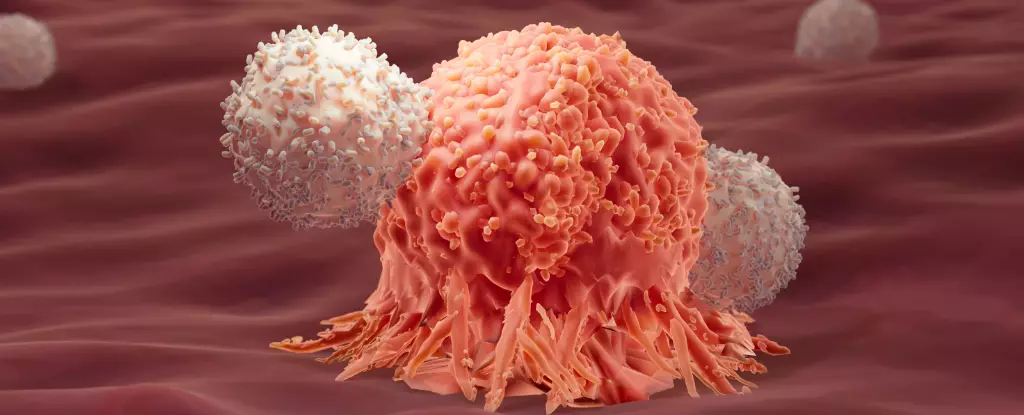Recent research has illuminated the multifaceted nature of the immune system, particularly in the context of cancer treatment. A notable focus has emerged on the relationship between various immune response types and their collective impact on patient outcomes. Traditionally, cancer therapy has relied heavily on type 1 immune responses—those that target intracellular threats like tumors. However, innovative studies suggest that the overlooked type 2 immune response may play an unexpected role in enhancing long-term remission rates among cancer patients undergoing treatments such as CAR-T cell therapy.
Immunotherapy has been hailed as a breakthrough in cancer treatment, leveraging the body’s immune system to combat malignant cells more effectively. One of the most promising methodologies is CAR-T cell therapy, where T cells are engineered to better recognize and destroy cancer cells. While this approach has shown remarkable success in treating certain blood cancers, such as acute lymphocytic leukemia (ALL), the relapse rates remain concerning, suggesting a need for further optimization.
A recent study led by researchers at École Polytechnique Fédérale de Lausanne (EPFL) found that a subset of patients who maintained long-term remission for over eight years exhibited a unique profile of immune responses, comprising both type 1 and type 2 immune markers. This revelation challenges the conventional understanding that type 2 immunity, typically associated with combating larger parasites, is inconsequential—or even detrimental—to cancer outcomes.
The idea of yin and yang, symbolizing balance and harmony, resonates profoundly with the findings from the recent studies on cancer immunotherapy. By examining approximately 700,000 CAR-T cells from 82 patients, researchers discovered statistically significant patterns linking type 2 immune factors with long-term survival. While these findings indicate correlation rather than causation, they beckon further exploration into how the interplay of these immune responses might synergize to enhance therapeutic efficacy.
A subsequent experiment on mice with colon adenocarcinoma provided compelling evidence supporting this hypothesis. Mice that received a combination of type 1 and type 2 immune responses demonstrated an astounding 86% cure rate, whereas those treated solely with type 1 immunity showed no survival advantage. This pronounced distinction highlights the potential of incorporating type 2 responses into existing treatment protocols.
The fundamental question arising from these studies is: how does the type 2 immune response enhance the efficacy of cancer treatment? Researchers observed that the inclusion of modified type 2 immune proteins appeared to invigorate a critical metabolic pathway known as glycolysis. By optimizing this energy production pathway, T cells could sustain their activities longer, accurately countering the fatigue that often hampers their effectiveness in solid tumors—a type of cancer historically resistant to immunotherapies.
Thus, the findings accentuate the significance of metabolic health in T cell functionality within cancer immunotherapy. As T cells become empowered with increased metabolic energy, they are better equipped to persist in the relentless battle against cancer—even in formidable solid tumor environments.
The exploration of combined immune responses opens new vistas in cancer research and treatment strategies. By developing therapies that harness the duality of type 1 and type 2 immunity, researchers could cultivate a more robust therapeutic arsenal capable of improving patient outcomes across various cancer types. However, as enticing as these findings are, it is imperative to approach them with cautious optimism. Further clinical trials will be crucial to validate these hypotheses and translate them into viable treatment strategies for human patients.
Additionally, the promise of immunotherapy is boundless; however, the path to truly revolutionary breakthroughs is fraught with complexity. Researchers must navigate the intricate interplay of immune responses, treatment modalities, and individual patient biology to carve a way forward effectively.
The emergence of studies highlighting the synergy of immune responses offers a transformative perspective on cancer treatment. By acknowledging the roles of both type 1 and type 2 immunity, researchers could develop groundbreaking therapies optimized for efficacy and durability. As the field navigates this uncharted territory, the potential for improving the lives of millions of cancer patients inches ever closer, all thanks to the harmonious dance of the immune system’s yin and yang.


Leave a Reply